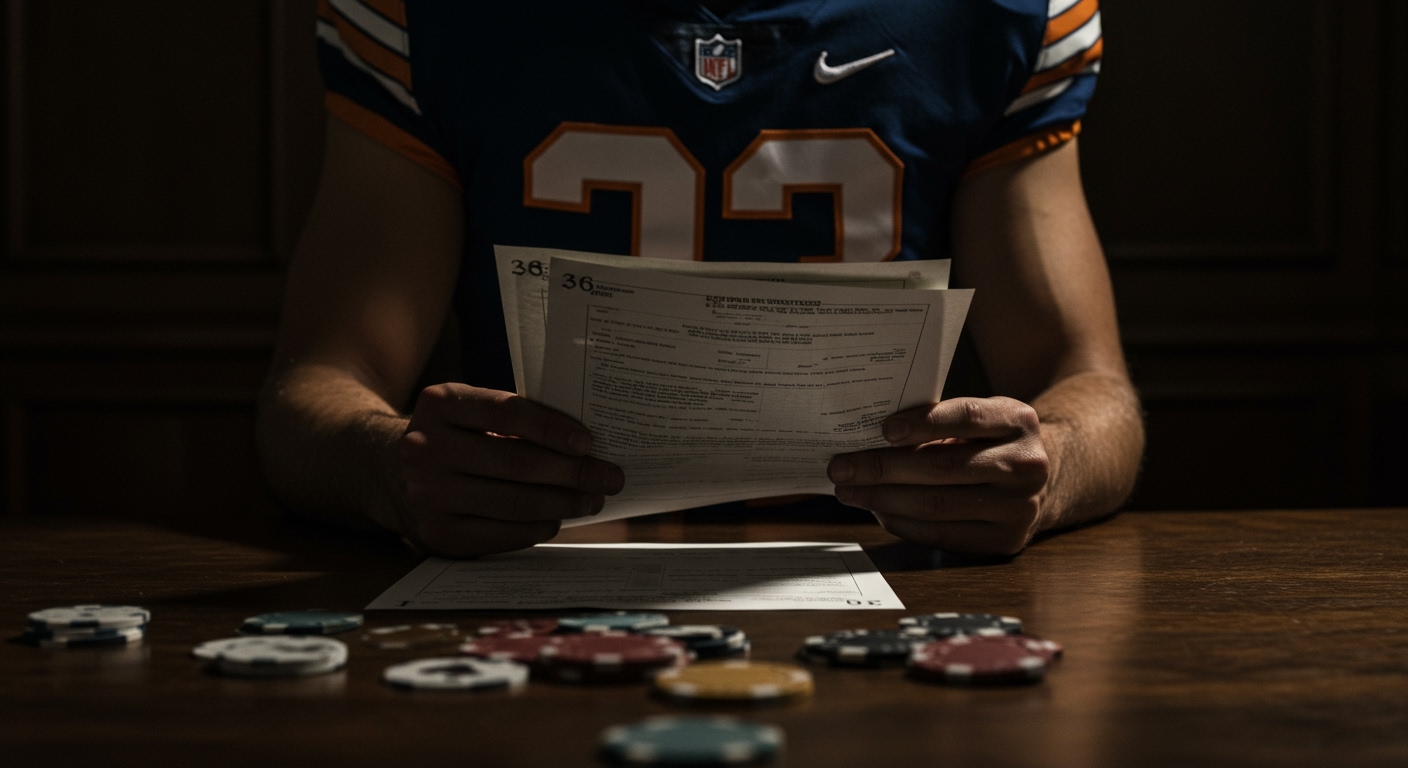London, UK – Former professional footballer Ryan Bowman has been handed a significant three-and-a-half-year ban from all football and football-related activity by The Football Association (The FA) for breaches of its gambling rules. The lengthy suspension follows an investigation into extensive betting activity by the player over a period spanning more than a year.
Details of the Gambling Offences
The FA’s investigation revealed that Bowman confessed to placing a total of 6,397 bets during a 15-month timeframe, specifically between June 15, 2022, and September 13, 2023. The charges brought against the player were for committing gambling-related offences.
A crucial and particularly serious aspect of the case involved bets placed on competitions in which his own teams participated. According to The FA, 108 of the bets placed by Bowman were linked to matches involving Exeter while he was actively playing for the club. Furthermore, an additional 243 bets were connected to fixtures involving Shrewsbury Town during his time at that club. Betting on one’s own team or competition is considered a severe violation of the rules designed to protect the integrity of the sport.
Breach of FA Rule E8
Bowman’s ban is a direct consequence of breaching the FA’s E8 rule. This regulation is fundamental to The FA’s framework for preventing corruption and maintaining public trust in football. Rule E8 prohibits participants from betting, either directly or indirectly, on the outcome of any football match or competition, anywhere in the world, or on any other matter concerning football anywhere in the world, including, for example, the transfer of players, employment of managers or team selection. By placing thousands of bets, including those on his own clubs’ matches, Bowman was found to have acted in clear contravention of this critical rule.
Context Amidst Other High-Profile Cases
Bowman’s case emerges amidst a period where several other prominent UK sportspeople have faced disciplinary action for breaches of gambling regulations. These recent cases have brought the issue into sharp focus across various sports, including football.
Other notable footballers recently involved in gambling rule breaches include Lucas Paquetá, Austen Booth, and Ivan Toney. These incidents highlight an ongoing challenge for governing bodies in ensuring compliance with betting rules among professional athletes. Ivan Toney, the Brentford and England striker, received an eight-month suspension and a £50,000 fine in May 2023 for similar offences, having admitted to 232 breaches of betting rules. The severity of Bowman’s three-and-a-half-year ban compared to Toney’s underscores the potentially different scales and types of breaches involved or the differing mitigating/aggravating factors considered by the disciplinary panel in each instance.
Broader Industry Concerns and Political Landscape
The timing of Bowman’s ban is likely to reignite concerns regarding the pervasive visibility of betting within football and the sport’s close ties to the gambling industry. The current rules prohibiting players from betting can appear complex to the public, especially in an environment where many clubs prominently display betting sponsors on their kits, stadiums, and through various media channels. This juxtaposition creates a challenging landscape for both regulators and players.
Significantly, the news of Bowman’s ban comes shortly after Liberal Democrat Members of Parliament sought to introduce amendments related to betting sponsorship into the Football Governance Bill, a piece of proposed legislation aimed at reforming football’s oversight in England. This political move reflects a broader push for greater scrutiny and potential restrictions on the relationship between football and the betting sector, motivated by concerns over addiction, integrity, and the welfare of those involved in the sport.
Implications of the Ban
A three-and-a-half-year ban represents a significant professional setback for Bowman, who is now prohibited from participating in competitive football during this period. The severity of the penalty serves as a stern reminder to all football participants of the stringent regulations in place and the serious consequences of violating them.
The case reinforces The FA’s commitment to using its disciplinary powers to maintain the integrity of football. As discussions continue regarding the appropriate relationship between sport and betting, cases like Bowman’s are expected to remain central to the debate surrounding regulation, education, and the responsibilities of professional athletes.





